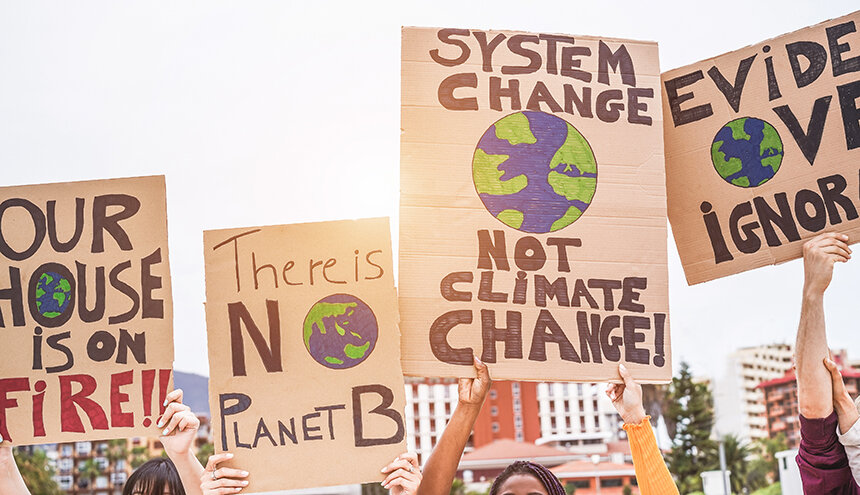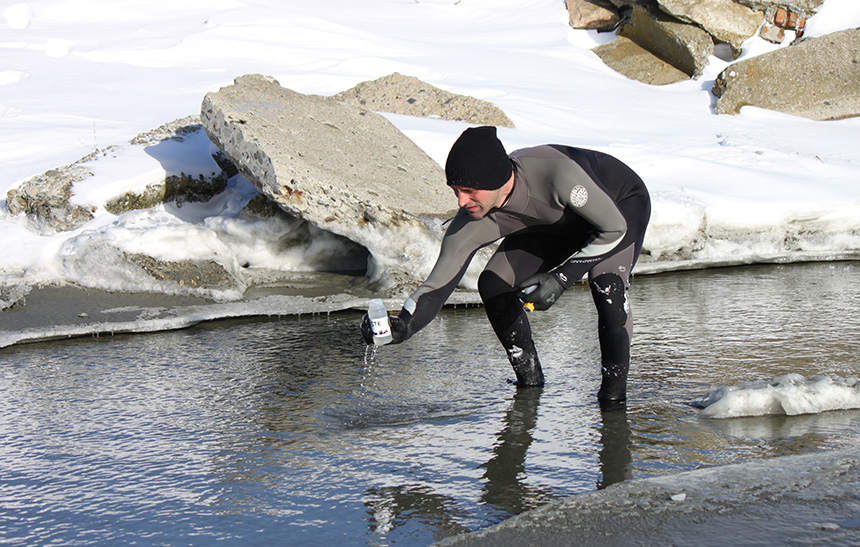Student Petition Puts Ocean State on Climate-Change Alert
Department of Environmental Management has 30 days to consider the petition or possibly be forced to address the proposal in court
September 6, 2018
PROVIDENCE — One of the most enduring actions in the movement to address climate change has been youth-led legal challenges. Across the county, young plaintiffs are suing the federal government in nine states over the failure to address climate change while favoring fossil fuel companies.
On Sept. 5, a group of students from second grade through graduate school presented their own challenge, albeit through administrative action. Nature’s Trust Rhode Island and the Sisters of Mercy Ecology delivered a 200-page plan to the Rhode Island Department of Environment Management (DEM) that asks the state agency to adopt strict regulations to protect them against climate change.
Currently, Rhode Island only has non-binding climate-reduction targets and legislation in the General Assembly has repeatedly failed to make them mandatory.
“Rhode Island’s current approach to reducing emissions is not based on the best available science. Moreover, the state does not currently take into account embodied emissions in products consumed in Rhode Island but emitted during manufacturing or transportation outside the state,” according to the petition.
By submitting the proposal to DEM, the agency has 30 days to consider the emissions-reduction plan. If not, DEM may be forced to address the proposal in court.
The petition asks DEM to adopt climate goals based on science. The plan must also address the precautionary principle, environmental justice, an emission budget and accounting, natural carbon storage, and negative emissions. It asks that the regulations be developed within six months, followed by public input. The plan would then be submitted to the General Assembly for approval.
“We need a home for our future generations,” said Chloe Moers, 16, of Providence. “I don’t want us to worry about basically being homeless from the planet that supports us.”
DEM didn’t respond to a request for comment.
Security interrupted the press event to ask the student activists to leave.
Categories
Join the Discussion
View CommentsRecent Comments
Leave a Reply
Related Stories
Your support keeps our reporters on the environmental beat.
Reader support is at the core of our nonprofit news model. Together, we can keep the environment in the headlines.
We use cookies to improve your experience and deliver personalized content. View Cookie Settings




Doctors may tell patients, “Stop smoking and get exercise or in five years you’ll be in the ER with a coronary infarction,” but then sometimes patients don’t listen.
The world is experiencing a runaway Arctic meltdown and we continue to put greenhouse gases into the air. In fifty years we could see massive world food shortages. Either we solve a few easily solvable engineering problems soon or else billions of people could starve to death. The United States Government is currently $21 trillion dollars in debt, so some of the hunger victims might be your own children and their neighbors.
We probably need wind-powered artificial snowmaking machines to coat sections of Arctic tundra with snow in late spring. We need to enhance winter ice pack replacement in the Arctic Ocean. Solar heat should heat our houses with a 90% reduction in winter fuel use. We need to generate 90% solar-sourced electricity after dark, probably by storing solar heat or with batteries. We need to replace our freeway construction system, again with a 90% lifetime reduction in fuel use. Our current engineering progress toward these five vital goals is absolute zero, zero, morbidly slow, too slow and zero.
In the 1930s, the March of Dimes funded Dr Jonas Salk to develop the world’s first vaccine for polio, a contagious disease that too often killed or paralyzed Americans up until 1960. If most politicians are too greedy to care about catastrophic climate change, why can’t we, the people, care ourselves?